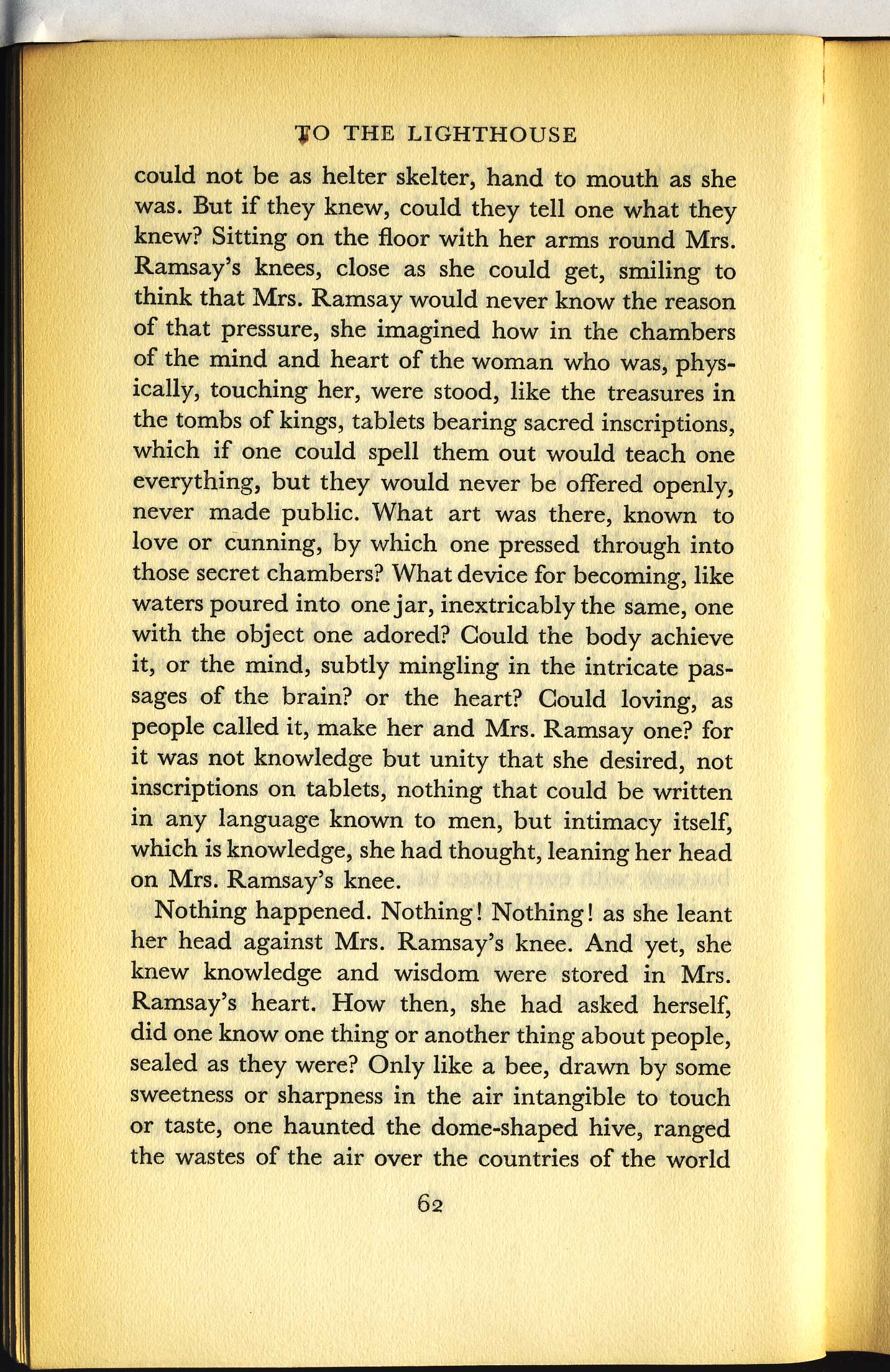
TO THE LIGHTHOUSEcould not be as helter skelter, hand to mouth as shewas. But if they knew, could they tell one what theyknew? Sitting on the floor with her arms round Mrs.Ramsay’s knees, close as she could get, smiling tothink that Mrs. Ramsay would never know the reasonof that pressure, she imagined how in the chambersof the mind and heart of the woman who was, phys-ically, touching her, were stood, like the treasures inthe tombs of kings, tablets bearing sacred inscriptions,which if one could spell them out would teach oneeverything, but they would never be offered openly,never made public. What art was there, known tolove or cunning, by which one pressed through intothose secret chambers? What device for becoming, likewaters poured into one jar, inextricably the same, onewith the object one adored? Could the body achieveit, or the mind, subtly mingling in the intricate pas-sages of the brain? or the heart? Could loving, aspeople called it, make her and Mrs. Ramsay one? forit was not knowledge but unity that she desired, notinscriptions on tablets, nothing that could be writtenin any language known to men, but intimacy itself,which is knowledge, she had thought, leaning her headon Mrs. Ramsay’s knee.
Nothing happened. Nothing! Nothing! as she leanther head against Mrs. Ramsay’s knee. And yet, sheknew knowledge and wisdom were stored in Mrs.Ramsay’s heart. How then, she had asked herself,did one know one thing or another thing about people,sealed as they were? Only like a bee, drawn by somesweetness or sharpness in the air intangible to touchor taste, one haunted the dome-shaped hive, rangedthe wastes of the air over the countries of the world62









